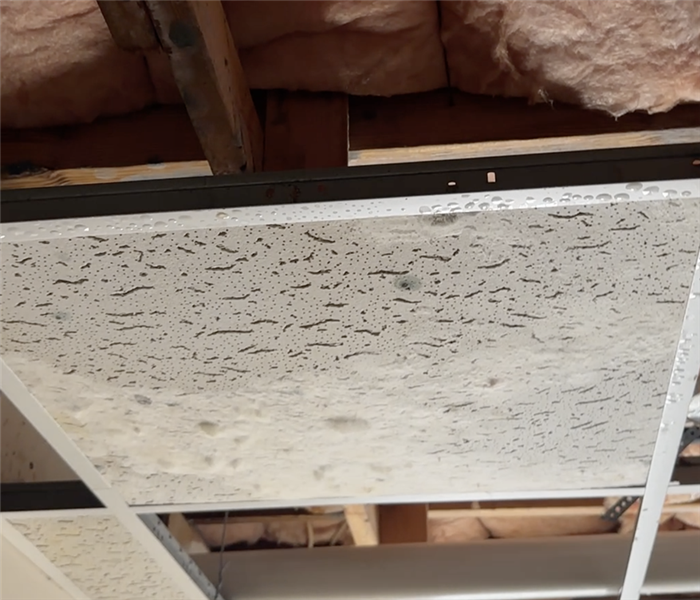Mold Removal vs. Mold Remediation: What's the Difference?
11/13/2024 (Permalink)
 By opting for mold remediation over simple mold removal, you’re taking a proactive step to protect your property from recurring mold issues.
By opting for mold remediation over simple mold removal, you’re taking a proactive step to protect your property from recurring mold issues.
When homeowners or business owners encounter mold, the terms "mold removal" and "mold remediation" are often used interchangeably. However, these processes are not the same. Understanding the difference can help you make informed decisions when dealing with mold issues in your property. Here, we’ll break down the key differences and offer expert insights on which service might be right for you.
What Is Mold Removal?
Mold removal refers to the process of physically removing mold from a surface. It sounds simple enough, but in reality, complete mold removal is nearly impossible. Mold spores are naturally present in the air, both indoors and outdoors, and eliminating all mold spores is unrealistic. Instead, mold removal focuses on cleaning affected surfaces and areas where visible mold has formed. This approach might help in the short term, but if the underlying cause of mold growth isn’t addressed, the problem can easily return.
What Is Mold Remediation?
Mold remediation goes a step further than removal. Instead of merely cleaning visible mold, remediation involves addressing the source of moisture that allows mold to thrive, cleaning contaminated materials, and preventing future growth. A professional mold remediation service includes inspecting the extent of the mold infestation, containing the affected area, removing contaminated materials, and cleaning the air with specialized equipment like HEPA filters. By focusing on the root cause and long-term prevention, mold remediation is a more comprehensive solution.
Key Differences Between Mold Removal and Remediation
- Scope: Mold removal focuses on cleaning visible mold, while remediation addresses both visible and hidden mold.
- Long-term Impact: Removal provides a temporary solution, whereas remediation ensures long-term prevention by tackling the underlying cause of mold growth.
- Process: Remediation often involves more extensive cleaning, dehumidification, and repairs to prevent future outbreaks.
Why Mold Remediation Is More Effective
According to the Environmental Protection Agency (EPA), controlling moisture is key to preventing mold growth. This is where mold remediation shines, as it prioritizes moisture control along with thorough cleaning. In fact, the EPA says the key to mold control is moisture control. Without addressing moisture issues, mold can return even after being removed.
When to Call Professionals for Mold Remediation
Mold problems often occur due to leaks, floods, or high humidity. If you spot significant mold growth or suspect hidden mold, it's best to call professionals like SERVPRO of Greater Carrollwood. Here’s a quick checklist of when you should consider mold remediation services:
- Large areas of mold growth (typically larger than 10 square feet)
- Persistent musty odors
- Visible mold in hard-to-reach areas like behind walls or under floors
- Ongoing water or moisture issues
By opting for mold remediation over simple mold removal, you’re taking a proactive step to protect your property from recurring mold issues. Our team at SERVPRO of Greater Carrollwood has the expertise and equipment to handle any mold problem, big or small.





 24/7 Emergency Service
24/7 Emergency Service